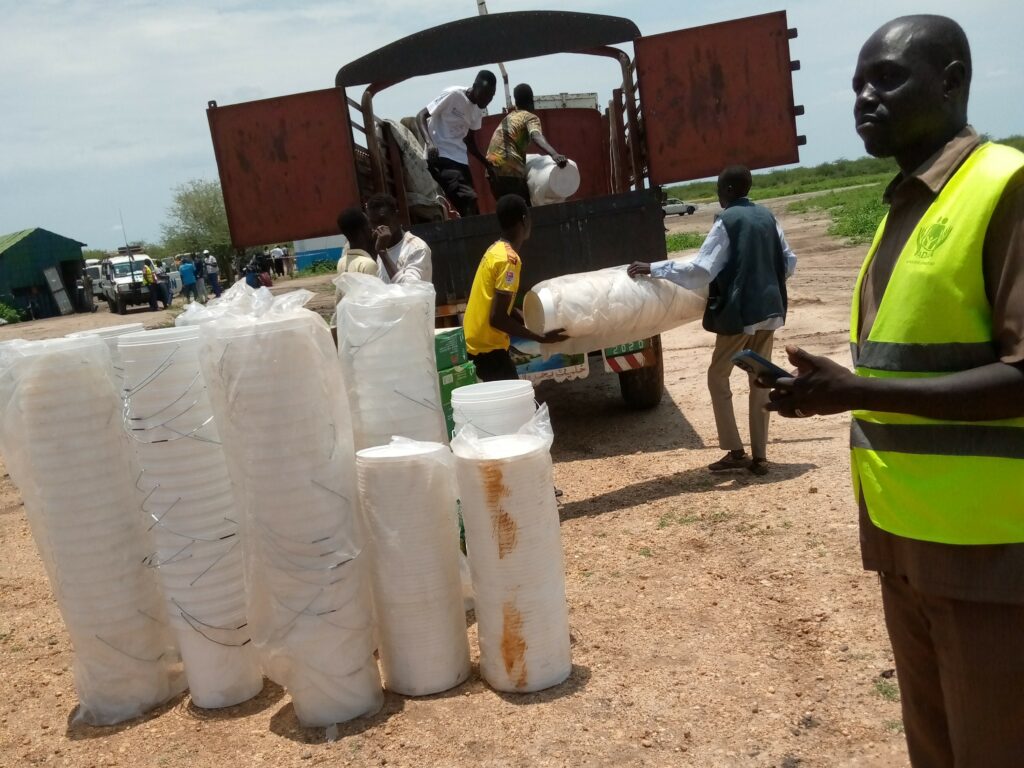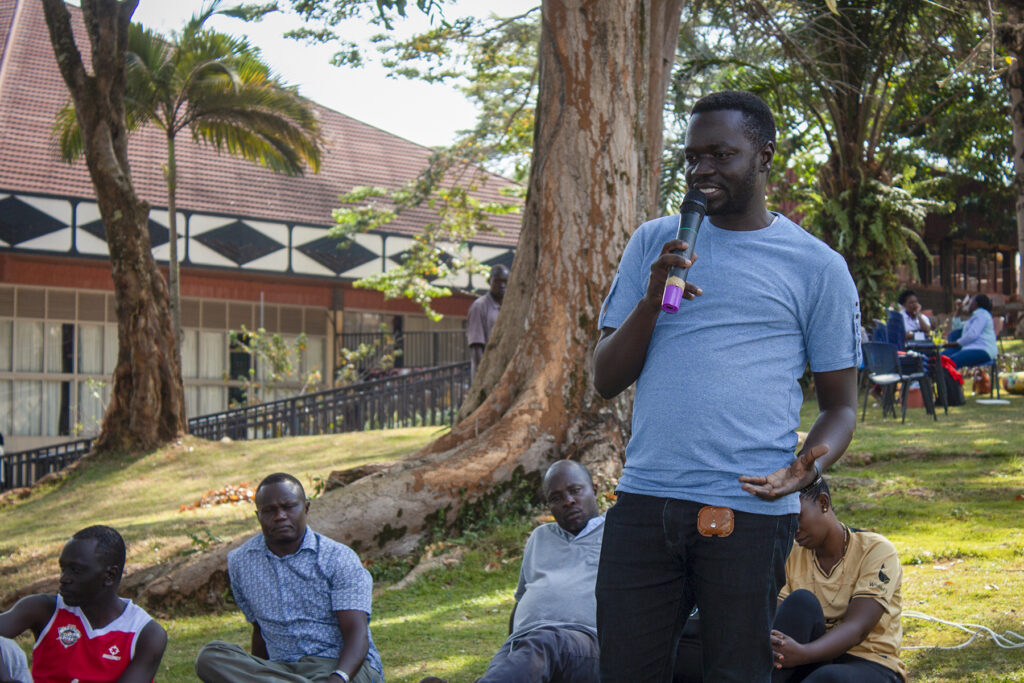Since the escalation of the conflict in Sudan, thousands of South Sudanese refugees have been forced to leave everything behind a second time. Many of them have fled back to their country of origin. Cordaid supports this severely impacted group with various forms of assistance. Bashir James, humanitarian programme manager for Cordaid in South Sudan, fills us in on the latest.

We spoke to Bashir in May, when hundreds of South Sudanese were arriving at the border every day, in search of safety and support. Providing the refugees with all kinds of urgent necessities and transporting them to their villages, was the main preoccupation of the humanitarian workers in the region.
In the meantime, Cordaid has been raising more funds among its private donor constituency, which allowed an increase in support activities. “We have been able to do a lot”, Bashir says. “In total, we have supported 12,000 people. We have set up a mobile clinic, where we feed and vaccinate children. We also arranged temporary shelter, constructed a sustainable water system, and distributed blankets and mosquito nets.”
